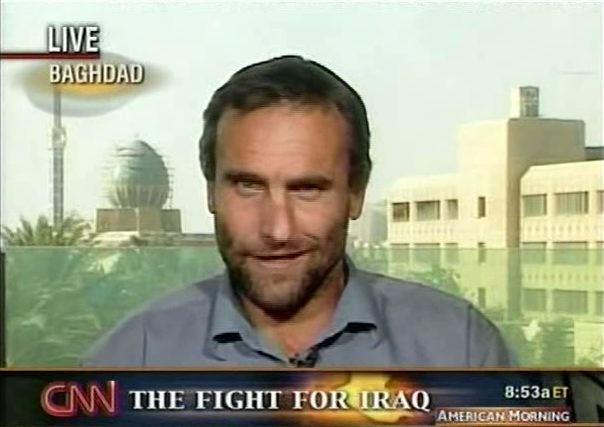AAM: "That's an absolutely...FASCINATING idea."

Click photo to play
Length: 3:07
MILES O'BRIEN: Death and bloodshed spreading to the oil-rich cities north of Baghdad. Reports of deaths today in Baquba after a series of deadly bombings in Kirkuk yesterday.
CNN's Michael Ware joining us from Baghdad with more -- Michael.
MICHAEL WARE, CNN CORRESPONDENT: Yes, Miles. What we saw was a particularly bloody Sunday in the northern city of Kirkuk. Four what looks like coordinated car bombings in less than three hours. In fact, we saw two suicide car bombings and one further car bombing detonate within this important city in less than 30 minutes. As the smoke cleared, there was 23 dead and at least 66 wounded. So this was very clearly a sophisticated and well-organized attack on this very important oil-rich and heavily contested northern city -- Miles.
O'BRIEN: And we haven't seen as much violence there, have we, Michael? What's going on?
WARE: Well, we do see spikes in violence in the northern Kurdistan region. I mean, Kurdistan is essentially a state within a state. It's been that way since the imposition of the no-fly zone during Saddam's regime, where Saddam's armies were kept away by U.S. and U.K. jets from the Kurds. Since the fall of Saddam's regime, the Kurds have maintained themselves as their own little region.
Nonetheless, they continue to be plagued, not so much by the Sunni insurgency that we see down here, nor by the Shia militias and death squads, but by al-Qaeda-backed groups, principally Ansar al-Sunnah -- which is renowned for its coordinated car bomb attacks, just like this one, though no one has yet taken credit. -- and by Ansar al-Islam, an al-Qaeda-backed group that President Bush claimed had been decimated in the invasion, which has since been well proven to be wrong -- Miles.
O'BRIEN: Meanwhile in Baghdad, this notion of building a trench around the city has a lot of people scratching their heads, Michael.
WARE: Oh, I mean, this is an absolutely... fascinating idea that was floated by the extremely controversial Ministry of Interior, which very quickly saw the U.S. military distance itself from this concept. I mean, immediately there's thoughts conjured up of a moat, more or less, around Baghdad. Reality, however, is much different.
What they're talking about is trying to control entry and exits from the capital. I mean, they already do that to an extent now. They're merely talking about re-enforcing that, perhaps with some additional trenches -- although many already exist, and there's natural canals that they use -- but we're talking more about barbed wire and berms, and the increasing of checkpoints in the leadup to what is traditionally the Ramadan or holy month offensive, which the holy month due to begin within days. This will be my fourth Ramadan, and I can tell you that I, like the U.S. military, is expecting yet another bloodbath -- Miles.
O'BRIEN: Michael Ware in Baghdad, thank you very much.
